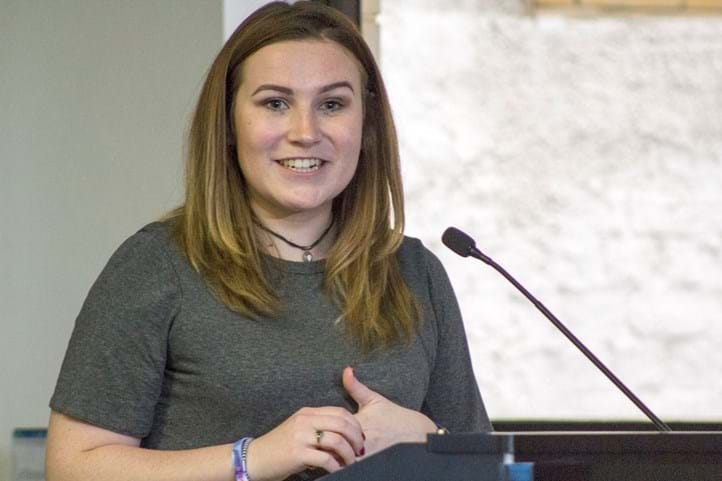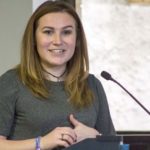I would love for life to become more accessible now everyone has felt loneliness in the pandemic

Molly, from Maidenhead in Berkshire, was born severely deaf. At the age of 12, she was diagnosed with Usher syndrome, a condition that causes gradual sight and hearing loss.
My name is Molly, I’m 26 years old and I have a condition called Usher syndrome, which causes deafblindness and has no cure to date.
I’m director of Molly Watt Talks, a usability and accessibility consulting group, and co-founder of the Molly Watt Trust, a non-profit helping to raise awareness about Usher syndrome and provide access to technology. I also work part time as an accessibility and usability specialist in Nexer’s design team in the UK.
I’m also a motivational speaker, author and illustrator of two anti-bullying children’s books, and an avid blogger.
Passionate about accessibility and using assistive technology to enhance the lives of people living with life-changing conditions, I’m really proud to have spoken at Houses of Parliament, Spotify and many other tech organisations.
“I’ve experienced loneliness throughout my life as my disabilities can affect my confidence.”Molly
After almost a year of lockdowns and social distancing measures, the pandemic has limited my connection to others. I can no longer meet with my friends, clients or colleagues, which has affected my overall wellbeing. However, I’ve always tried to make the most of what I can with the tools I have at home, and luckily I’ve been able to work from home all the way through the pandemic.
The pandemic has limited my connection to others
I’m very sad that lots of my work travelling has had to be postponed or cancelled. I’m dependent on routine and structure, socialising on a weekend helps to break up the week and allows for things to look forward to.
It’s so important to connect with people, have a laugh, and get a chance to relax. Currently, it’s just a lonely, open-ended blur.
I’ve been involved with Sense for a number of years now. While I haven’t always been supported by them, I can see the value of the work they do and services they offer people who are disabled.
Simple things like going to the post office people can take for granted, which can be difficult for someone with disabilities, are suddenly made so much easier with the right tools and awareness.
I rely on public transport in my daily life and think improvements to make transport services more accessible would help my confidence to go out and gain more independence. Along with this, more community resources openly available and designed to be digitally accessible for all assistive tools.
Making life more accessible to combat loneliness
Being able to access the local community, sports sessions, and even navigating the world of education and work does a lot to combat loneliness and the feelings of low self-esteem.
I was able to access many of these things prior to lockdown, and with the correct support and tools I was able to be more independent and of course, less lonely.
Knowing that I can count on Sense, should I need to, gives me the confidence I need to tackle the challenges in my way.
With the world growing more digitally inclined, I feel things will be gradually become more accessible, and life would hopefully improve for people who have disabilities.
Non-disabled people can possibly now empathise more with how people with disabilities can face both digital and environmental exclusion, social separation and lack of independence.
Sign our pledge
Join us in taking action to make sure that no one is left out of life.
Think, Ask, Include
Read our top tips on how to make your local community disability-friendly.

